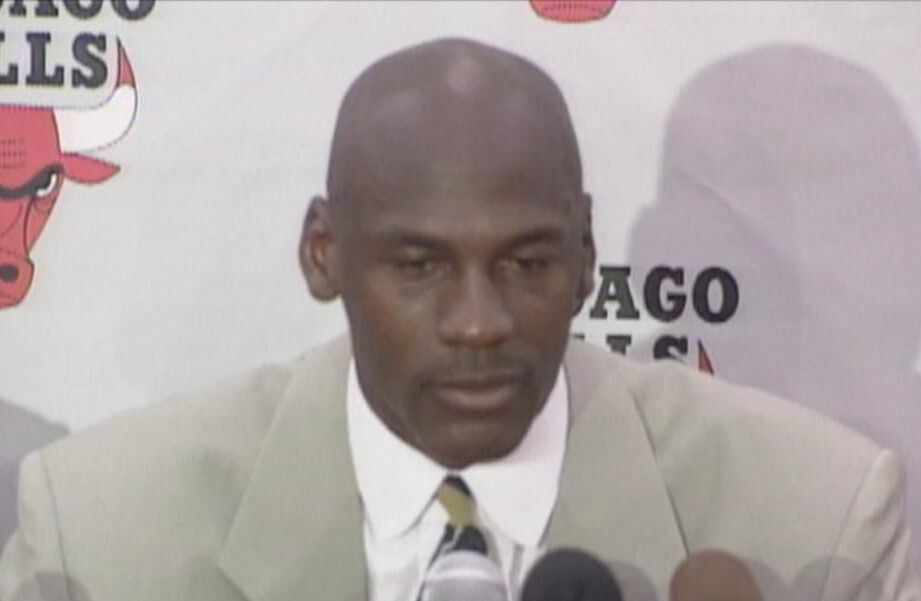30 years ago today, on October 6, 1993, the sports world was rocked by news that would forever alter the landscape of professional basketball. Michael Jordan announced his retirement from the NBA.
This unexpected decision marked the end of an era and left fans, teammates, and analysts in shock.
The Chicago Bulls, led by Michael Jordan, had just secured their third consecutive NBA championship in June 1993. Jordan, who had already achieved legendary status with his basketball prowess, was at the peak of his career. His scoring ability, leadership, and competitive spirit were unmatched, making him the face of the NBA and a global icon. The Bulls’ dominance in the early ’90s was a testament to Jordan’s unparalleled skills.
Despite his basketball success, Jordan was dealing with a personal tragedy. In July 1993, his father, James Jordan Sr., was tragically murdered during a robbery. The loss of his father deeply affected Jordan, as James had been a constant presence and source of support throughout his life and career. The shock of this devastating event led Michael Jordan to reevaluate his priorities and consider stepping away from the game he loved.
On October 6, 1993, Michael Jordan stunned the sports world by announcing his retirement from professional basketball. In a press conference, he cited his father’s death as a significant factor in his decision, explaining that he had lost his motivation to play without his father watching from the stands. Jordan also expressed a desire to pursue a career in baseball, a sport that he had loved since his youth and one that his father had shared a passion for.
Following his retirement from basketball, Jordan embarked on a brief and unconventional career in minor league baseball. He signed with the Chicago White Sox and spent the 1994 baseball season playing for the Birmingham Barons, the White Sox’s Double-A affiliate.
While Michael Jordan was away from basketball, the NBA felt his absence keenly. Ratings dipped, and the league missed its biggest star. Other players, like Charles Barkley and Hakeem Olajuwon, stepped up, but there was a void that no one could truly fill. Jordan’s retirement also allowed players like Shaquille O’Neal and Penny Hardaway to rise to prominence, but the league was undoubtedly less compelling without him on the court.
Then in March 1995, Michael Jordan announced his return to the NBA with two simple words: “I’m back.” His return to the Chicago Bulls brought a renewed sense of excitement to the league and its fans. Jordan wore the number 45 upon his return (his familiar number 23 had been retired in his honor), and he quickly regained his status as the league’s premier player.
Jordan’s comeback led to another era of dominance for the Chicago Bulls. From 1996 to 1998, they won three more consecutive NBA championships, completing a second three-peat. Jordan’s impact on the court was as significant as ever, and his competitive fire burned brighter than ever before. His return solidified his legacy as one of the greatest athletes in the history of sports.


